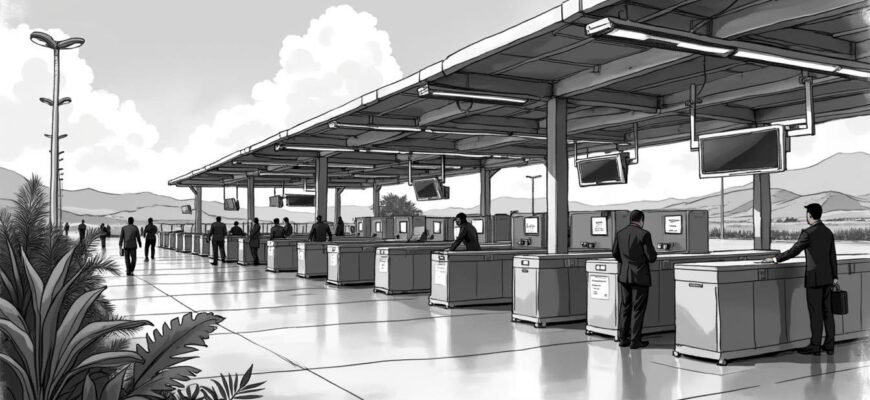Flights to Haiti are suspended due to some serious security issues. Seems like no one is really safe, huh? This got me thinking about how blockchain could really change the game when it comes to airport security, especially in places like Haiti.
Introduction to Airport Security Challenges in Haiti
Recently, some flights to Haiti had a bullet hole discovered after a flight to Port-au-Prince. Not exactly the most reassuring thing to hear. This has forced the FAA to ban flights to Haiti by U.S. carriers for 30 days. Clearly, we need better security for everyone involved.
The Potential of Blockchain Technology
Now let’s talk about what blockchain can do. This tech is decentralized and has a reputation for being tamper-proof and transparent. So it could help reduce fraud and counterfeit goods in the cargo supply chain. For passengers, it provides a way to verify identity and track records securely, improving the overall security of airports.
Real-Time Data Management and Tracking
One of the best parts of blockchain is real-time tracking. It makes sure all transactions are securely recorded and shared, which could decrease the chance of lost cargo. This is particularly important in a place with a lot of security breaches like Haiti, where real-time data management would help passengers feel a tad safer.
Identity Verification and Smart Contracts
Blockchain can also change how we verify identities at airports. Imagine better safety and security with contactless boarding and check-in. Smart contracts could help to automate document verification and background checks, ensuring sensitive data like criminal records stay private.
Improved Collaboration and Governance
Also, blockchain can make it easier for everyone involved—airlines, airports, and security agencies—to work together. A private-permissioned blockchain could be run by an organization like the IATA, so everyone knows who’s responsible. This governance is key to maintaining a secure blockchain network and could really improve airport security.
Economic Impacts and Blockchain Solutions
The economic fallout from flight bans is no joke, especially for low-income countries. It can take a long time for them to recover. Blockchain may help mitigate some of that pain by making the aviation industry more cost-effective and resilient.
Summary
In summary, blockchain has the potential to seriously enhance airport security in chaotic regions like Haiti. It could provide solid solutions for real-time data, identity verification, and better collaboration among everyone involved. As the aviation industry continues to face its share of security issues, blockchain might just be the answer we didn’t know we needed.








